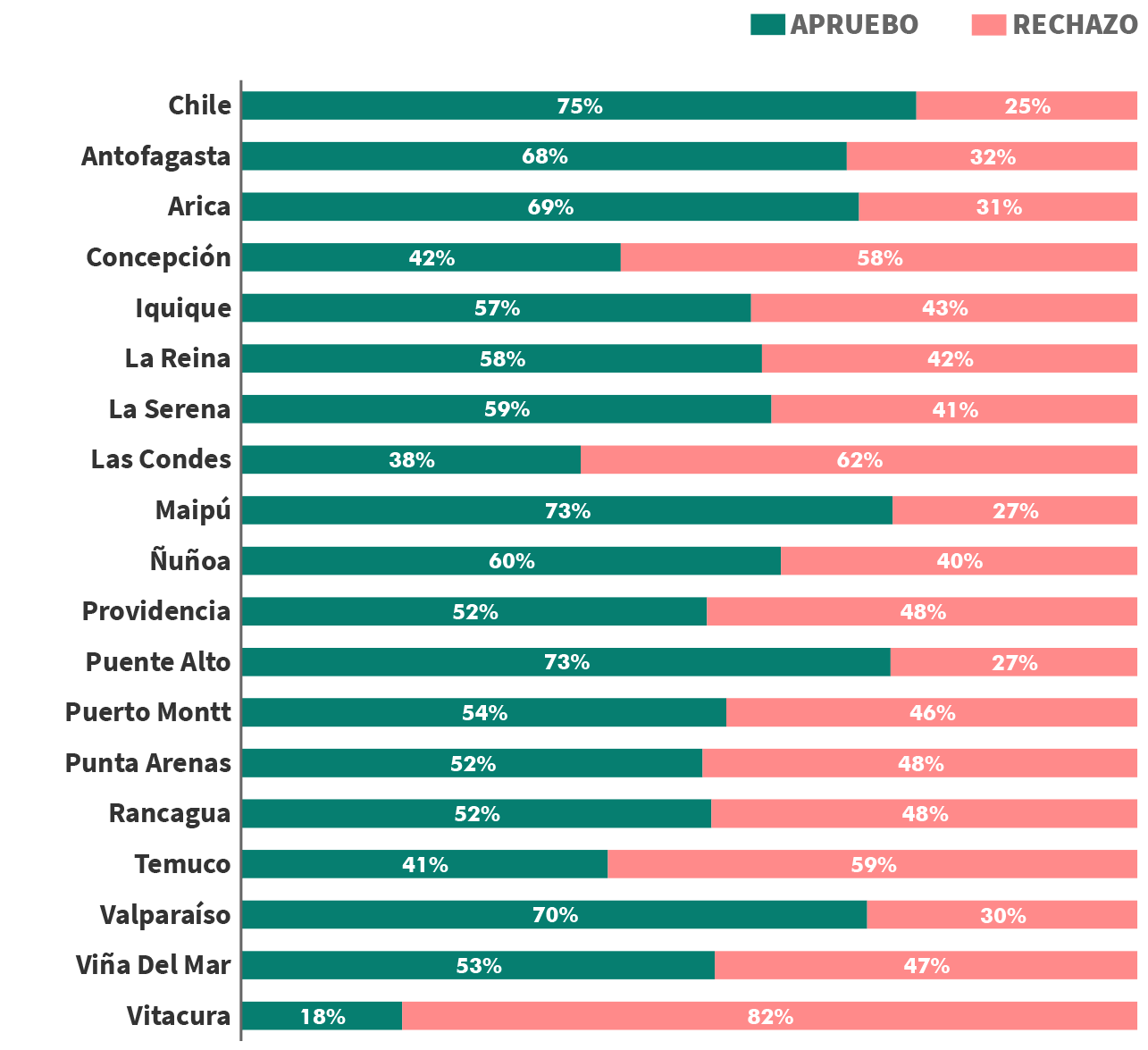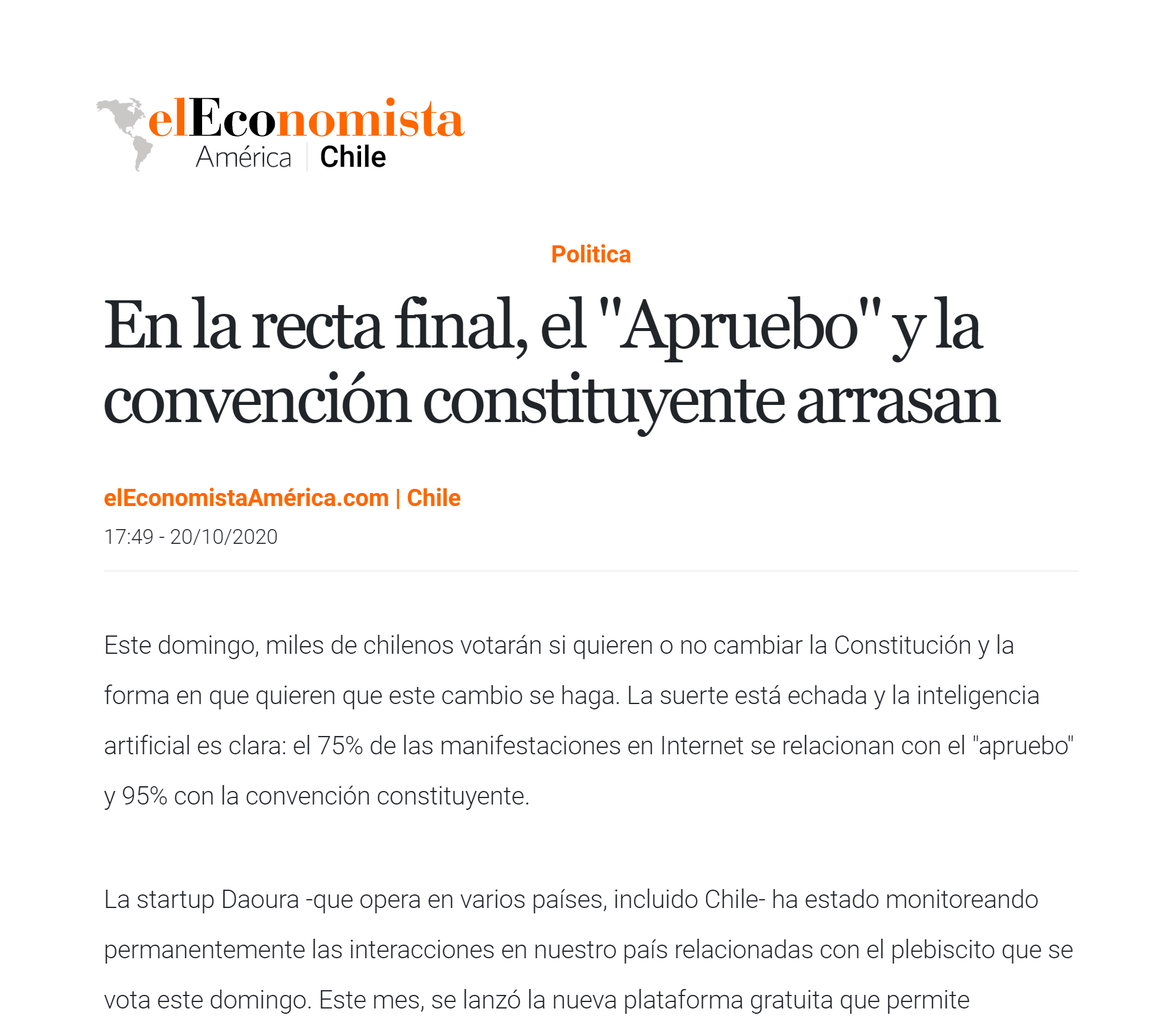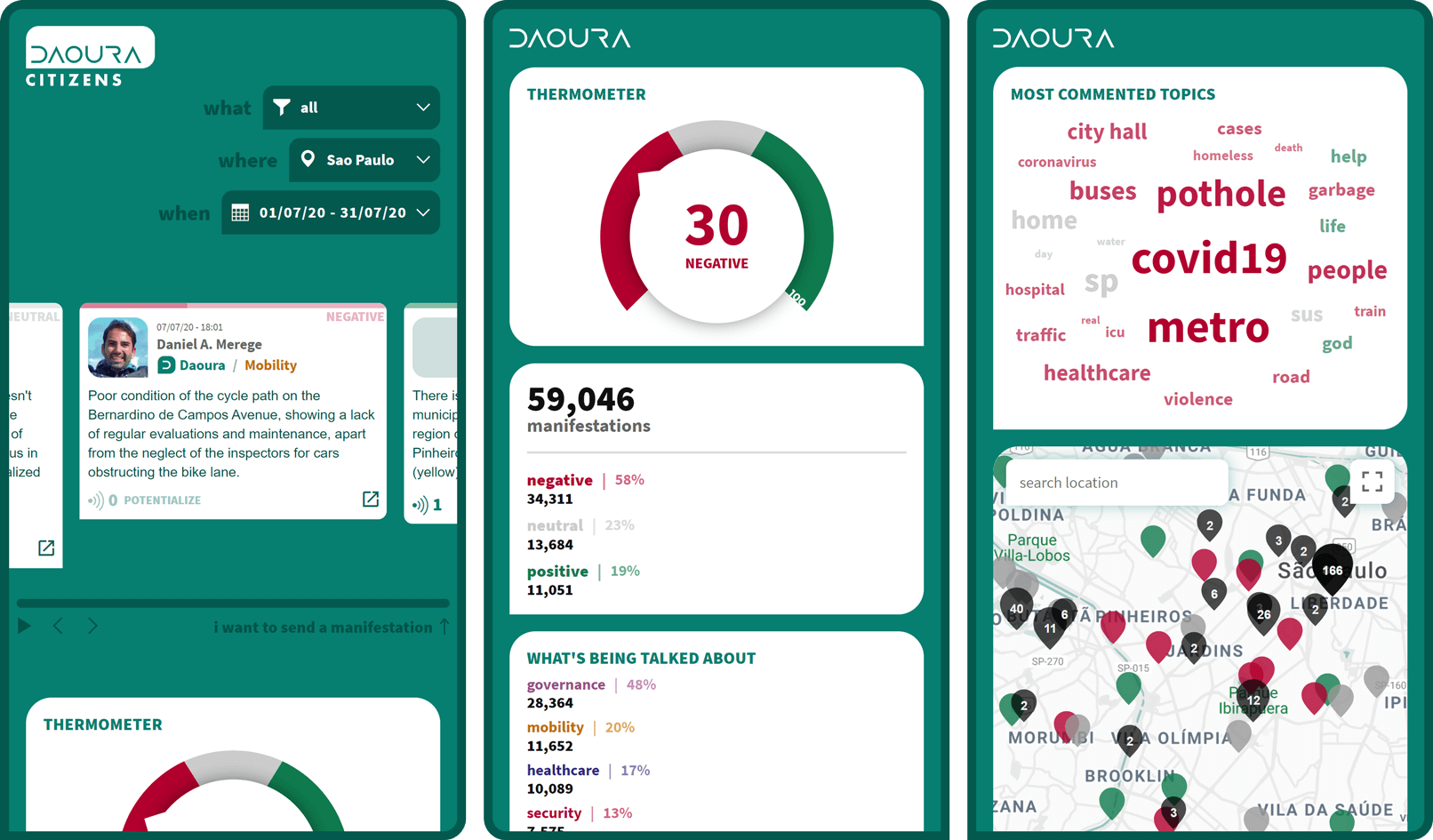Just over a year ago, when the first social events took place in Chile and led the country to vote last Sunday, 25/10/2020, for a new constitution, Daoura platform began to monitor public manifestations on the Internet on the subject.
There were many insights extracted from an enormous amount of analyzed data (approximately 5 million interactions) so that artificial intelligence could detect a pattern and suggest that the option “approve” (in favor of the new constitution) would win.
According to the forecast by Daoura on the Monday before the day of the referendum, the “approve” option would win with approximately 75% of the votes against 25% of the “reject” option. After the final counting of votes, the confirmation came: 78.27% of Chileans voted for approval, against 21.73% for rejection, a result of only 3 percentage points of difference between reality and the projection of artificial intelligence.
In addition, in an analysis in 18 of the main “comunas” in Chile (administrative division in Chile, which corresponds to a municipality in other countries), we also identified which of them would be more inclined to approve and which ones to reject a new constitution for the country. 15 of these 18 communes showed results in the same direction that Daoura had been anticipating for months.

How did we do this projection?
With the advent of the Internet, the increase in accessibility and digital inclusion and, more recently, due to the pandemic, the number of people's manifestations on digital channels (social networks, news, blogs) about social and urban problems presented a huge boom in the entire world.
Daoura, who has been collecting these public data for three years, interprets them, categorizes them and generates insights from each of the manifestations, monitored, from the moment the discussions on the new constitution in the country took place, the terms most used by chileans to express their opinion on the topic (among them “plebiscito”, “yoapruebo”, “yorechazo”, “convención constituyente” and “convención mixta”) and could identify how each of these terms was used in the timeline , its correlations with socio-economic indicators – such as poverty index, revenue and electoral participation per comuna –, and also terms related to each of the movements supporting or rejecting the new constitution.
All of these analyses allowed Daoura to create scenarios and project how much and where the plebiscite was talked about, and which side each of these manifestations leaned on, a fact that was confirmed at the polls last Sunday and shows the relevance and importance of understanding the digital manifestations to anticipate results like this and make decisions in any field.

How was the data validated?
Anticipating results like this, of unquestionable importance for the future of a nation, requires a lot of analysis and responsibility. Since October last year, we published on our Daoura Blog, on social networks and also in the Chilean press, partials for these indicators, and we made all possible considerations, so that the results were validated, questioned and considered throughout the year.
More recently, with the start of campaigns by both movements, our relationship with the national and also regional press has intensified. We publicized the numbers of the 18 most important comunas in the country and we were interviewed by important national journalists, who questioned how the numbers were generated and validated by the platform, and their premises and limitations.
One of the recurring questions was whether our indicators were as valid as election polls. As Daoura interprets texts from the internet and generates insights from these interpretations, we reminded the interlocutors that we could not compare our numbers with electoral surveys, mainly because we did not ask direct questions to the population, but rather listened to those who expressed themselves digitally on the topic, data that cannot be ignored once many people are informed and influenced by the information they find online. We also could not guarantee representativeness, given that many voters do not use the Internet to manifest themselves or do not even have access to the digital channels that we monitor.

And what were these insights for?
The fact that our projection came very close to the real result strengthens the importance and relevance of the Internet as a platform for expressing people's opinions and perceptions on these topics.
The published insights served, mainly, for the understanding of people about the direction taken by the discussions about the new constitution on the Internet and also for the campaigns to establish their communication strategies, from the inclination to one side or the other.
Furthermore, from a broad perspective, Daoura platform, based on this great case that was Chilean plebiscite, shows its strong potential in being an ally of companies and governments for a more efficient and intelligent management of the demands of people.
For citizens, the platform contributes to the qualification and promotion of the debate on social and urban problems, and to an increase in people's participation in the identification and solution of the problems of cities in Chile and in the whole world.

